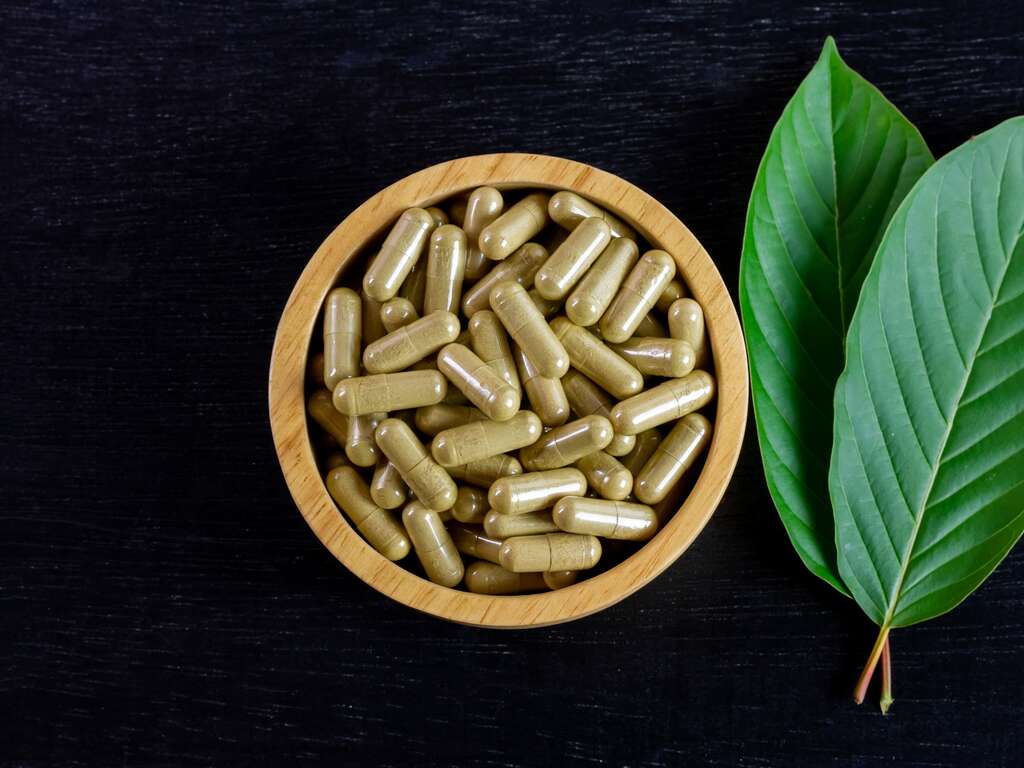If you are a person living with an anxiety or depressive disorder, you know the toll it can take on your daily life and overall well-being. You may have heard about natural remedies for improving mental health and wondered if they might be worth trying. One such suggestion is kratom, a Southeast Asian tree leaf traditionally used to boost energy levels and improve moods.
In modern times, many have begun to explore its potential use in helping relieve symptoms of both anxiety and depression while providing additional benefits such as increased focus and motivation. This article will discuss these effects, safety concerns associated with kratom use, dosage information, and other considerations to help determine whether kratom may be suitable for treating anxiety or depression symptoms.
What is Kratom and How Does It Work to Treat Anxiety and Depression

Kratom is an herbal supplement that has gained popularity for its ability to alleviate symptoms of anxiety and depression. It is derived from the leaves of the kratom tree and is often consumed in a tea or capsule form. The active ingredients in kratom, mitragynine, and 7-hydroxymitragynine interact with the brain’s receptors to produce a calming effect.
Kratom has been used for centuries in Southeast Asia as a traditional medicine and is now being studied as a potential alternative to prescription medications for anxiety and depression. However, it is essential to note that kratom can have side effects and should be used under the guidance of a healthcare professional. As the incidence of anxiety and depression continues to rise, kratom may be a valuable tool in managing these conditions.
Benefits of Kratom for Individuals Suffering from Mental Health Issues
Kratom has been found to offer many benefits to those suffering from anxiety and depression. For example, it can help reduce stress levels, improve sleep quality, increase focus and motivation, and even act as an antidepressant.
It is important to note that kratom should only be used as an adjunctive therapy under the guidance of a healthcare professional. Like any natural remedy, it should not replace traditional treatments such as talk therapy or medications. However, it may help reduce symptoms and improve overall well-being.

Potential Side Effects of Using Kratom for Anxiety and Depression
Like any supplement, kratom can have potential side effects. These include nausea, constipation, headaches, and dizziness. In rare cases, it has also been linked to an increased risk of seizures or heart attacks. It is essential to speak with your healthcare provider before using kratom for anxiety or depression to discuss possible risks and benefits.
In addition, due to the lack of regulation in the area of supplements such as kratom, there is a chance that it could be contaminated with potentially dangerous additives or ingredients. Therefore, purchasing only from reputable sources that provide third-party laboratory testing results is essential.
How to Determine the Right Dosage of Kratom for Your Needs
The correct kratom dosage for each individual will depend on various factors, including the severity and type of condition being treated. It is usually recommended to start with a low dose and gradually increase it until the desired effects are achieved.
It is important to note that taking too much kratom can lead to an increased risk of severe side effects such as seizures or heart attacks. Therefore, it is essential to consult with your healthcare provider before using kratom to determine the correct dosage for your needs.
Different Methods of Taking Kratom and Their Effectiveness
Kratom is available in various forms, each with its benefits and drawbacks. The most common methods are consuming it as a tea or capsule, smoking it, or using an extract.
Tea is the most popular way to take kratom, but capsules can provide more accurate dosing and longer-lasting effects. Smoking may benefit individuals who have difficulty taking supplements orally due to nausea or other digestive issues. Extracts can also provide more concentrated doses but must be used cautiously due to their potency.
Another method of taking kratom is through transdermal patches, which are applied directly to the skin and can provide more sustained effects throughout the day. These patches are still in the early stages of research and should only be used with caution.
Regardless of the chosen method, it is essential to consult with a healthcare professional before using kratom for anxiety or depression to determine the appropriate dosage and method.
Alternatives to Taking Kratom, Including Lifestyle Changes, Therapy, and Medication
In addition to taking kratom, other alternative therapies are available for treating anxiety and depression. These include lifestyle changes such as regular exercise, healthy eating, getting enough sleep, and reducing stress.
Talk therapy may also be beneficial in managing symptoms of anxiety and depression. Additionally, a doctor may prescribe medication if the individual’s symptoms do not respond to other treatments. It is important to remember that no one treatment works for everyone, so it is important to explore different options until the most effective solution is found.
Conclusion
Kratom has been used for centuries in Southeast Asia as a traditional medicine and is now being studied as a potential alternative to prescription medications for anxiety and depression. Although it can effectively manage symptoms, it is essential to use caution when taking this supplement and to speak with a healthcare professional before using it.
In addition to taking kratom, lifestyle changes such as exercise, healthy eating, and stress reduction can also help reduce symptoms of anxiety and depression. Finally, talk therapy or medication may be prescribed if the individual’s symptoms do not respond to other treatments.









